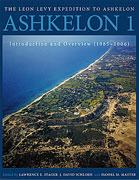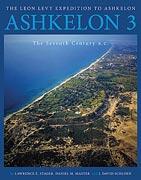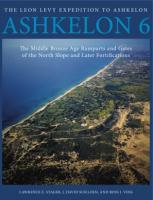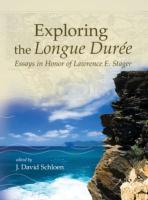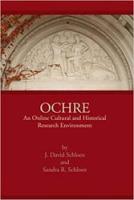
Academic Bio
J. David Schloen is the John A. Wilson Professor of Archaeology and Digital Studies in the Institute for the Study of Ancient Cultures, the Department of Middle Eastern Studies, and the College of the University of Chicago. He specializes in the archaeology and history of the Levant in the Bronze and Iron Ages (ca. 3500 to 500 BCE). For more than 30 years he has directed large-scale excavations and field schools at archaeological sites in Israel, Turkey, and Spain. His archaeological fieldwork began in 1989 in the long-running Harvard University excavations at Ashkelon on the south coast of Israel, where he served as associate director from 1994 to 2004 and later co-authored three volumes of the final excavation report. He has also directed excavations at Tel Yaqush, a village of the Early Bronze Age (3500–2500 BCE) on the northern Jordan River in Israel, and at Alalakh in the Plain of Antioch (modern Antakya) on the Turkish-Syrian border, a prominent city of the Middle and Late Bronze Ages (2000–1200 BCE). He has current fieldwork projects at three sites: the Aramean city of Sam’al (modern Zincirli Höyük) in the Gaziantep province of southeastern Turkey; the Canaanite-Phoenician site of Tell Keisan north of Haifa in Israel; and the Iron Age Phoenician colony site of Cerro del Villar near Málaga on the south coast of Spain.
Schloen synthesizes archaeological and textual evidence to understand the early cities and kingdoms of the Levant and how they were organized socially, economically, and politically. Much of his research and teaching is concerned with the Canaanite culture of the Bronze Age Levant and its Israelite and Phoenician manifestations in the Iron Age. Developments in the Canaanite world reveal the broader structural transformations of the first millennium BCE, which wrought fundamental changes in Mediterranean society and economy in the period before the classical Greek and Roman empires. Schloen explores these transformations by studying the interaction between mundane social practices and the shared metaphors and narratives that sustained, and were sustained by, those practices. For example, his book on The House of the Father as Fact and Symbol examines the intertwined ideological and material dimensions of ancient patriarchal households on various social scales using Max Weber’s concept of “patrimonialism,” as seen through the lens of more recent hermeneutical theory.
Schloen has a background in computer science and has also made innovative contributions in the use and teaching of computational methods in the humanities. He was instrumental in establishing the University of Chicago’s M.A. program in Digital Studies of Language, Culture, and History and he serves as the Faculty Director of the Forum for Digital Culture, the University of Chicago’s cross-departmental center for digital arts and humanities. He has a particular interest in phenomenological and pragmatist critiques of disembodied artificial intelligence and the implications of these critiques for the design of a foundational ontology suitable for semantic integration of data across diverse research projects and recording systems.Out of this has emerged the OCHRE computational platform, which respects the individual critical practices and semantic autonomy characteristic of academic research by faithfully modeling each project’s terminology and conceptual distinctions. It does not require researchers to use a standardized ontology but relies on an abstract foundational ontology to enable multiple semantic mappings across projects for purposes of large-scale querying and analysis, thus upholding the hermeneutical claim that the meanings of linguistic expressions depends on their use in context.
Selected Publications
Recent & Regularly Taught Courses
- DIGS 20007/30007 History and Theory of Computing for the Humanities
- NEAA 20321/30321 Ancient Levant I: From the Stone Age to the Late Bronze Age
- NEAA 20322/30322 Ancient Levant II: From the Early Iron Age to the Hellenistic Era
- NEAA 20100/30100 Introduction to Archaeology
- NEAA 20331/30331 Households, Kinship, and Demography in the Ancient Near East
- NEAA 20332/30332 Economic Exchange and Political Organization in the Ancient Near East
- NEHC 20010/30010 Social Theory and Ancient Studies
- NEHC 20121/30121, Ancient Israel in the Bible and in Archaeology


